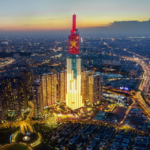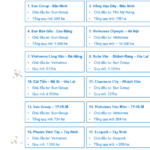On March 9, the People’s Committee of Cam Lam district announced that it has issued a plan to gather opinions from relevant agencies, organizations, individuals, and the community regarding the zoning plan (1/2000 scale) for zones 1, 3, and 4 of the Cam Lam New Urban Area project.
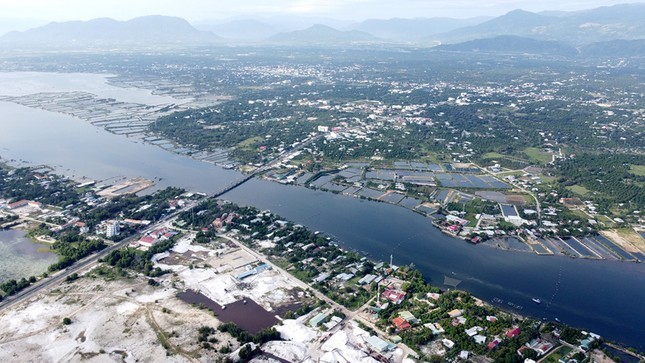
The central area of Cam Lam district undergoing the zoning plan consultation (1/2000 scale).
The purpose of gathering opinions is to achieve a high level of consensus in awareness and actions among the Party, government, and people on the district’s zoning plan within the Cam Lam New Urban Area project. The collection of opinions from the community regarding the zoning plan is carried out through feedback forms, public display, announcements on public media, or the introduction of the zoning plan at conferences.
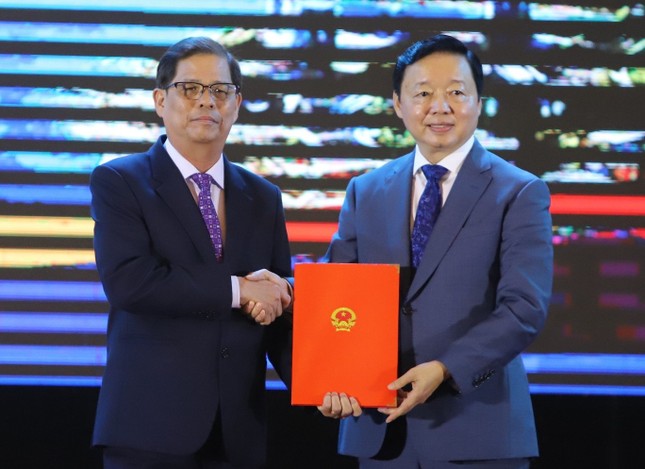
Deputy Prime Minister Tran Hong Ha presents the decision to approve the zoning plan for the Cam Lam New Urban Area to the leaders of the Khanh Hoa People’s Committee.
The scope of the opinion gathering activities includes the following zones: Zone 1 (research area with a total area of 3,603.64 hectares, belonging to Cam Hai Dong commune), Zone 3 (research area with a total area of 7,057.12 hectares, including parts of Suoi Tan, Cam Tan, Cam Hoa, Cam Hai Tay, Cam Hai Dong, Cam Hiep Bac, and Cam Duc town), and Zone 4 (research area with a total area of 5,652 hectares, including parts of Cam Thanh Bac, Cam Hiep Bac, Cam Hiep Nam, Cam An Nam, Cam An Bac, Cam Hai Tay, Cam Hai Dong, and Cam Duc town).
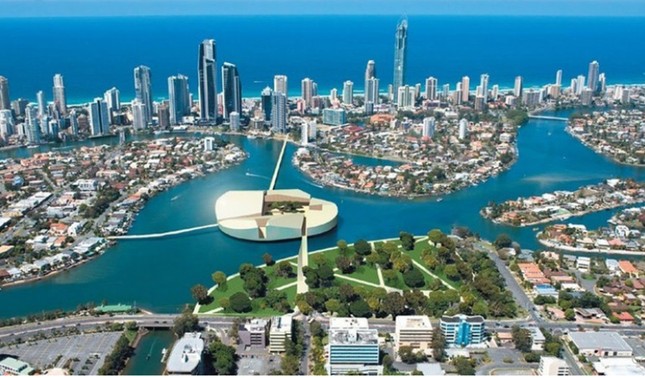
The future development of the Cam Lam New Urban Area’s central district.
As previously reported by Tien Phong newspaper, on February 28, the Prime Minister signed a decision approving the General Urban Zoning Plan for the Cam Lam New Urban Area in Khanh Hoa province until 2045. According to the approved plan, the Cam Lam New Urban Area includes the entire administrative boundary of Cam Lam district, with a total natural area of over 54,700 hectares. The goal is to develop it into a modern international airport city, a world-class eco-tourism and logistics center, a financial and intellectual services hub, a global center for education, healthcare, research, and the application of new technologies.
The estimated total investment capital required for the construction of the infrastructure in the Cam Lam New Urban Area is around 320 trillion VND. The projected population size by 2030 is approximately 320,000 people, including about 224,000 urban residents, with an urbanization rate of about 70%. By 2045, the projected population size is around 770,000 people, including about 639,780 urban residents, with an urbanization rate of about 83%.





